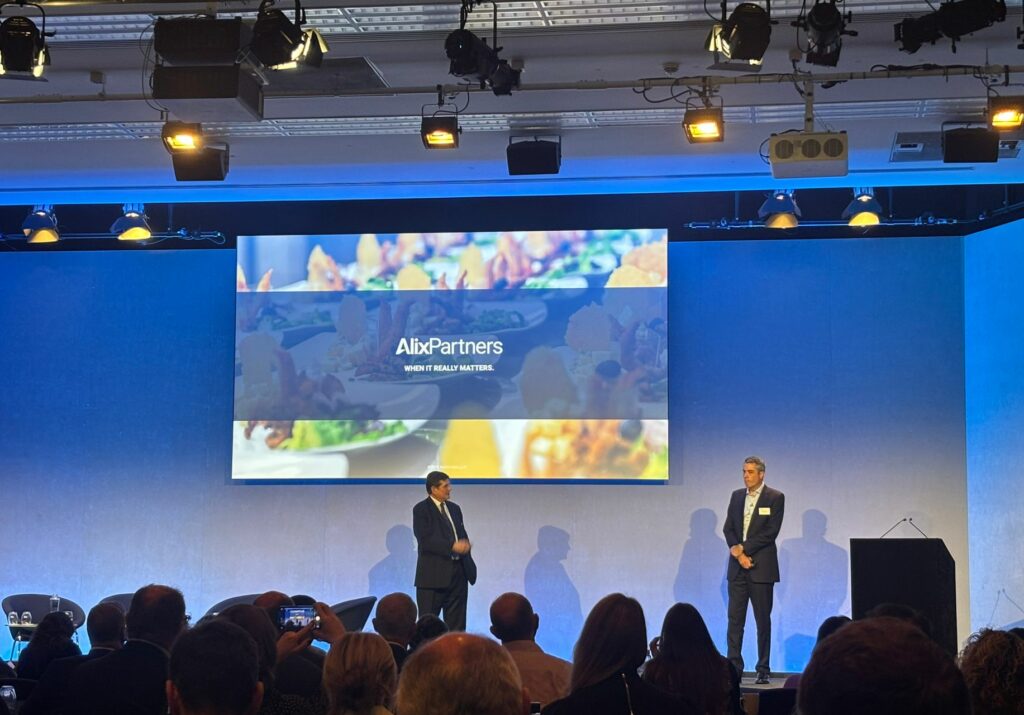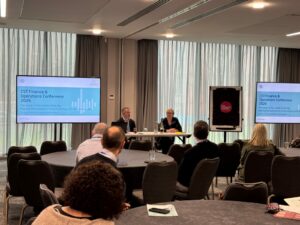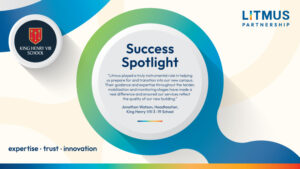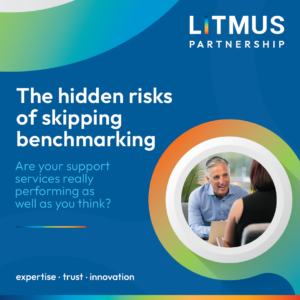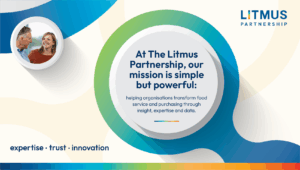By Candice Finn, Managing Director, The Litmus Partnership
Last week, I attended the AlixPartners Foodservice Growth Event – a highlight in the industry calendar, and this year’s discussion felt particularly timely. With the sector continuing to evolve at pace, the insights shared offered a compelling snapshot of where the market is heading and what operators, suppliers and clients should be preparing for.
Below are some of the trends and themes that stood out to me.
1. Post-COVID contracts are now hitting renewal, and cost efficiency is firmly back on the table
Many contracts that were renegotiated or extended during the pandemic are now coming up for renewal. This next cycle will look very different. With overall economic growth remaining subdued, clients are understandably pushing more assertively for cost efficiencies. They want greater transparency, clearer value and partners that can innovate operationally – not simply commercially.
At Litmus, we’re already seeing more organisations taking a strategic look at how catering and support services are delivered, and where efficiencies or alternative delivery models could help them weather challenging cost pressures.
2. Outsourcing continues to rise as catering becomes more complex to deliver
The event reaffirmed what we’ve been observing: outsourcing is set to keep growing. Catering and hospitality delivery has never been more complex, driven by inflation, supply chain volatility, labour shortages, regulatory demands, and ESG expectations.
For many organisations, outsourcing to specialist providers is becoming not just a cost decision, but a resilience and capability decision. Providers with deep expertise, scale and systems will be well positioned to support organisations move forward.
3. Technology and data are reshaping efficiency – and helping address labour challenges
Technology is firmly established as a ‘need to have’ as opposed to a ‘nice to have’. Operators are investing in digital platforms, analytics, labour-management tools and insight-led planning to optimise spend and performance.
Tech-enabled forecasting and automation are helping providers manage labour more efficiently – an area under persistent pressure due to shortages and rising costs. As this accelerates, we expect to see more innovative models emerge, especially within large multi-site operations.
4. M&A is driving capability, depth and market reach
Over the past three years, the deal landscape has been dominated by major global groups. Their acquisitions haven’t just been about scale, but also about added capability, sector expertise and footholds in key markets.
This M&A activity is reshaping competitive dynamics and creating new ecosystems of services and solutions. It also speaks to a sector that, despite economic challenges, remains highly investable when businesses can demonstrate resilience and clear differentiation.
5. Growth is returning – particularly in education catering
The majority of operators saw revenue growth in 2024, with education caterers experiencing the strongest uplift. This is encouraging – and reflects both the recovery in daily volumes and the continued prioritisation of quality, compliance and wellbeing within schools, colleges and universities.
6. Insights from the panel: UK leadership, India’s rise, and the value of cultural understanding
The panel discussion with speakers from WSH, Compass and Elior, focusing on the UK and international markets, shone a light on some interesting insights:
- The UK is driving European growth, largely due to its maturity, innovation and competitive landscape.
- India is emerging as a powerful growth region – with rapid development, world-leading technology, rising expectations around foodservice and an expanding corporate and education market.
- Regional and cultural understanding is becoming a critical success factor for global operators seeking to enter or scale in new markets.
A standout moment from the event for me was the learnings from the conversation with Helen Milligan-Smith, President & CEO at Aramark UK – for me, as a woman in leadership, I found it incredibly inspiring.
Hearing how she has led Aramark UK from £200m to £900m in just five years was remarkable, but what resonated even more was her philosophy on people, culture and leadership. Helen spoke about the importance of surrounding herself with individuals who have a genuine entrepreneurial spirit – people who are empowered to take risks, challenge each other constructively and drive innovation from within.
Her focus on retention was equally impressive; Aramark UK achieved a 99.1% retention rate last year, underpinned by a culture that values clarity, collaboration and shared purpose. She also discussed their highly selective approach to new business, ensuring any partnership is built on aligned values and a deep understanding of client needs. Listening to Helen was a powerful reminder of what bold, human-led leadership can achieve – and how setting high expectations, while creating space for people to thrive, can transform an organisation.
I found the event genuinely compelling – full of sharp analysis, honest discussion and a clear-eyed view of the challenges and opportunities ahead for our industry. It’s events like these that help us benchmark, challenge our assumptions and continue to support clients with the most up-to-date insights.
Thanks, Candice.
The Litmus team

